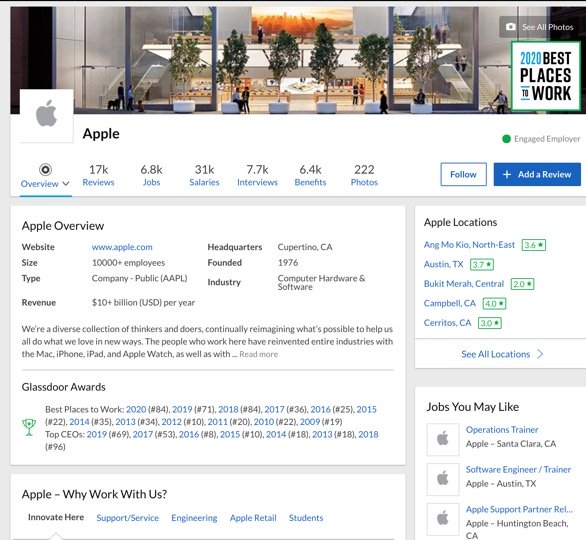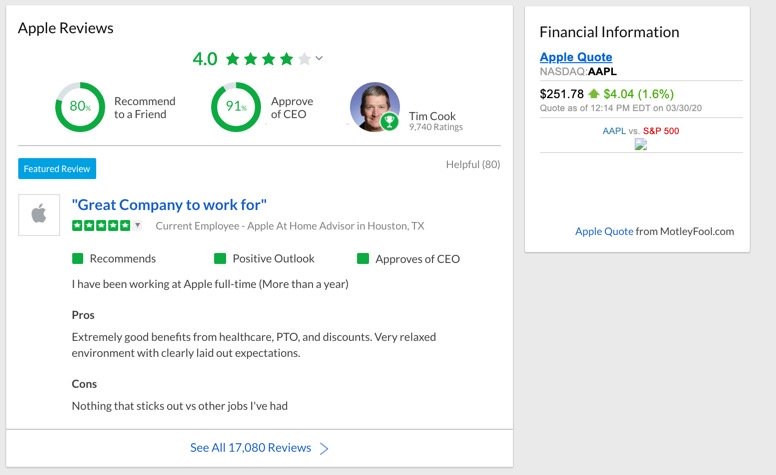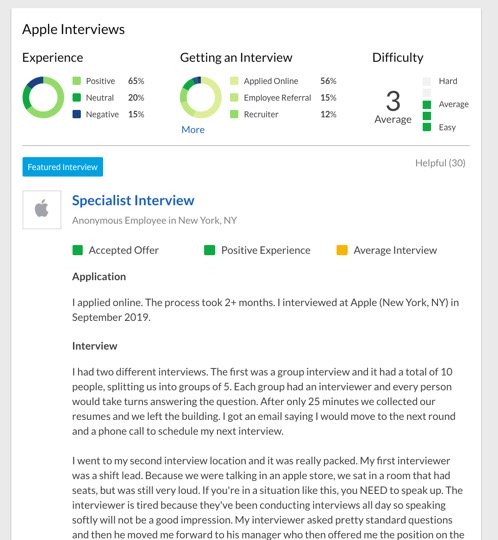People want to work for a company with a good reputation. The best job candidates consider more than just pay, benefits, and catered lunches. They also look at your brand’s reputation. Do people hold your brand in high regard? Do your brand’s values and vision match their own?
A brand’s reputation is, in fact, one of the most important factors for job seekers. Just as you’re judging them to provide a job offer, they’re judging you on whether they will accept it. But don’t just take our word for this. Here are some supporting statistics on the importance of reputation for the hiring process.
Statistics about recruiting and reputation
- 76 percent of people want to work for firms with a good reputation
- 69 percent of job prospects will reject a job offer from a company with a bad reputation, even if unemployed
- 92 percent of people would consider leaving their current jobs if offered another role with a company that had an excellent corporate reputation
- 45 percent of 35-44 year olds would leave their current job for less than a ten percent pay increase to join an excellent company
- 72 percent of recruiting leaders worldwide agreed that employer brand has a significant impact on hiring
- 59 percent of recruiting leaders worldwide are investing more in employer brand
Businesses are investing more to build their brand’s reputation and the reputation of their workplace environment. A positive reputation will help to attract the best candidates for your job opening.
So how can you build a brand reputation that will attract the best possible candidates? A lot of the same steps for building your overall reputation strategy apply. Even if your brand’s reputation is in good standing, it’s still worthwhile to dedicate extra time to focus on your employer brand.
What is employer brand?
Your employer brand is how your company is perceived by job seekers in terms of its reputation, company culture, and employee retention. Whether or not people are happy to work for your company and the length of time they stay with you contribute to your employer brand. It is similar to your company’s overall reputation, but it is targeted towards job seekers.
Companies with a strong employer brand can really differentiate themselves in the job market. Crafting your employer brand is an opportunity to showcase all of the reasons why your company is an excellent place to work. This is the time to share your unique company story, showcase employee testimonials, and congratulate your leadership team. By improving your employer brand, you can expect to attract, engage, and retain the best possible candidates for your open positions.
The impact of reviews on your employer brand
Just like you monitor review sites like Yelp or Google Reviews for your business, you should also monitor hiring review sites like Glassdoor and Indeed. Why? These sites have a lot of what Google calls “authority” so they tend to rank highly for your branded keywords. It’s important to keep the strength and authority of websites in mind when improving your company’s online reputation because only those with real strength with be highly visible when job seekers are researching your company.
The first step is to set up a complete profile. Here’s a look at Apple’s Glassdoor profile. Their company profile includes overview information about the company, and it proudly displays their awards as a best place to work for the past 12 years.
Scroll further down and you’ll see reviews on both the company and the hiring process specifically.
Peer reviews are a strong indicator of company reputation
Employee reviews are a key component of hiring portals. The research on employee reviews is very similar to what you would expect for Yelp reviews on your products and services:
- Almost half of all job seekers use Glassdoor at some point in their job search
- Good ratings of a company’s compensation and benefits are most important
- Fresh reviews (less than 6 months) have the greatest impact on perceptions of your company
Monitor your online brand to see what jobseekers see
Monitor what people are saying on job portals like Glassdoor Indeed, and Monster, and respond to both positive and negative reviews. If you’re seeing a pattern of negative reviews, it’s time to address the issue and fix it – stat. Don’t forget to ask current employees, especially happy ones, to submit reviews as well.


